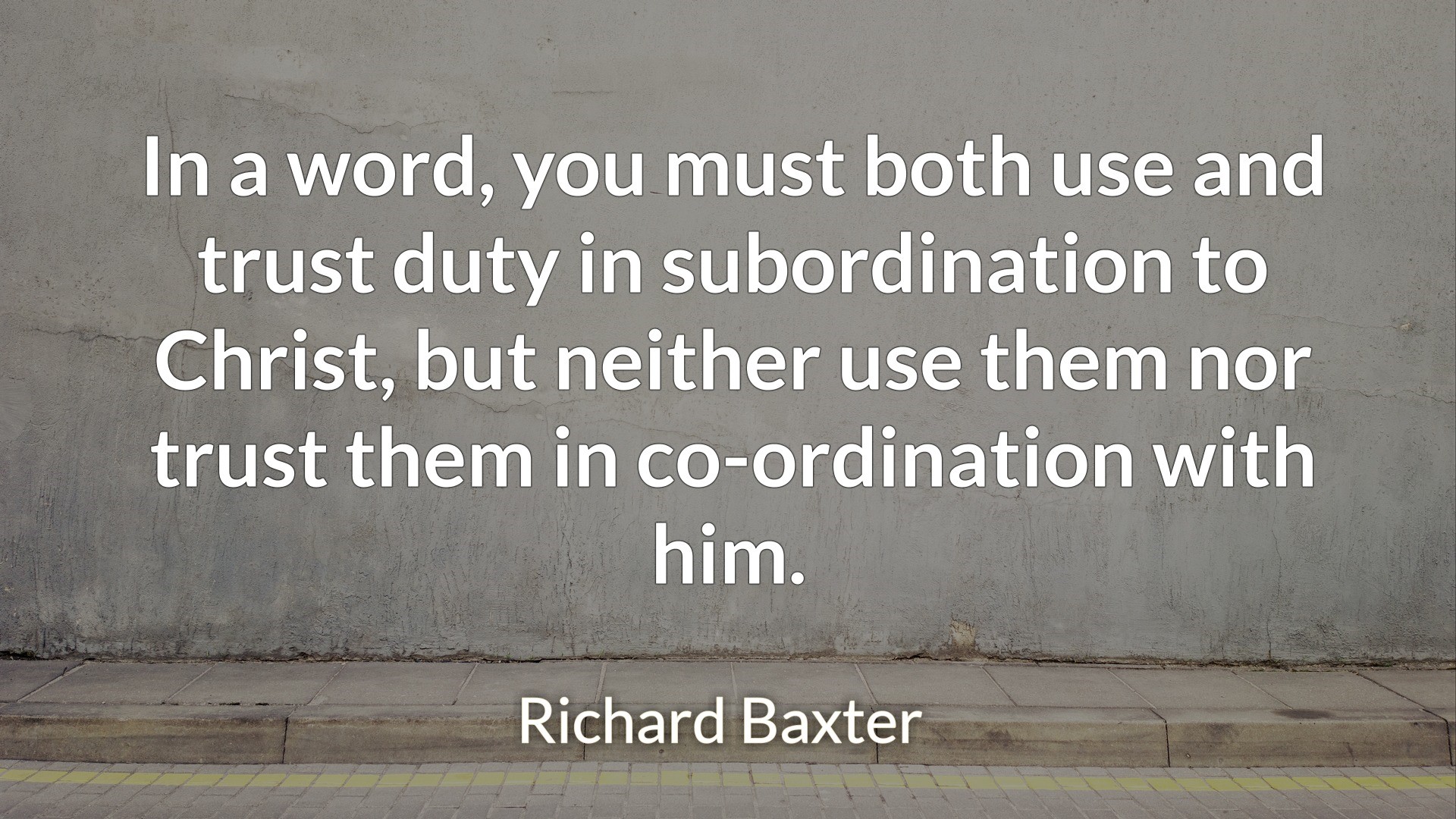“2. It is not a note of a legalist neither: it hath been the ground of a multitude of late mistakes in divinity, to think that ‘Do this and live,’ is only the language of the covenant of works. It is true, in some sense it is; but in other, not. The law of works only saith, ‘Do this,’ that is, perfectly fulfil the whole law, ‘and live,’ that is, for so doing: but the law of grace saith, ‘Do this and live’ too; that is, believe in Christ, seek him, obey him sincerely, as thy Lord and King; forsake all, suffer all things, and overcome; and by so doing, or in so doing, as the conditions which the Gospel propounds for salvation, you shall live. If you set up the abrogated duties of the law again, you are a legalist: if you set up the duties of the Gospel in Christ’s stead, in whole or in part, you err still. Christ hath his place and work; duty hath its place and work too: set it but in its own place, and expect from it but its own part, and you go right; yea, more, how unsavoury soever the phrase may seem, you may, so far as this comes to, trust to your duty and works; that is, for their own part; and many miscarry in expecting no more from them, as to pray, and to expect nothing the more, that is, from Christ, in a way of duty: for if duty have no share, why may we not trust Christ, as well in a way of disobedience as duty? In a word, you must both use and trust duty in subordination to Christ, but neither use them nor trust them in co-ordination with him. So that this derogates nothing from Christ: for he hath done, and will do all his work perfectly, and enable his people to do theirs: yet he is not properly said to do it himself; he believes not, repents not, &c., but worketh these in them: that is, enableth and exciteth them to do it. No man must look for more from duty than God hath laid upon it; and so much we may and must.”
Richard Baxter and William Orme, The Practical Works of the Rev. Richard Baxter, vol. 22 (London: James Duncan, 1830), 32–34.


